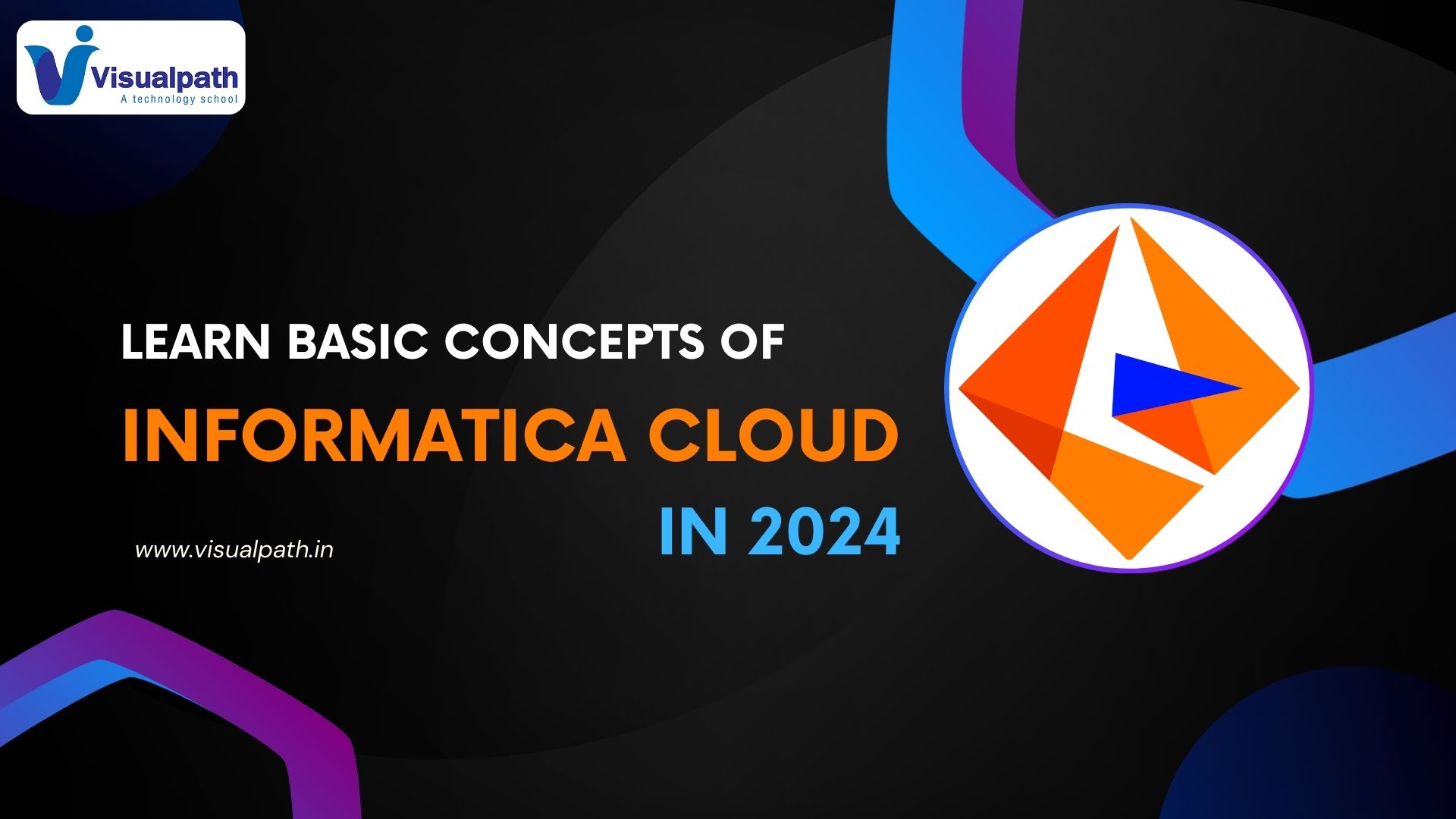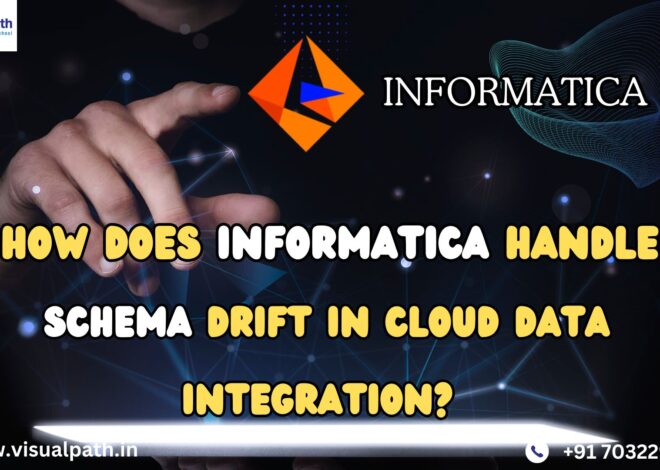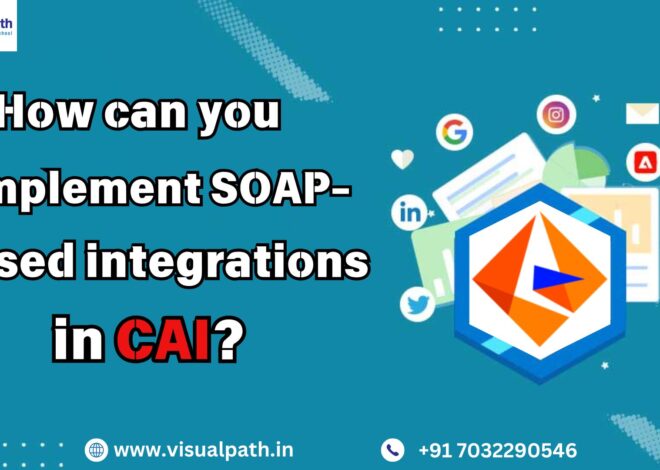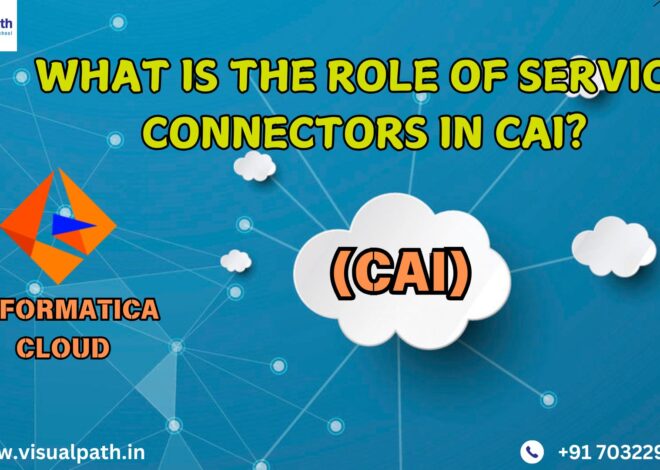Informatica Cloud is a comprehensive cloud data management and integration platform that helps organizations manage, integrate, and ensure the quality of their data across on-premises and cloud environments. Understanding the basic concepts of Informatica Cloud is essential for leveraging its capabilities effectively. Informatica Online Training
Here’s an overview of the key concepts:
1. Informatica Cloud Architecture
Informatica Cloud operates on a multi-tenant architecture, providing a scalable and secure platform for data integration. The architecture comprises three main components:
- Informatica Cloud Server: This is the central processing unit hosted by Informatica, where all the integration tasks are managed.
- Secure Agent: A lightweight program installed on the customer’s infrastructure (either on-premises or in the cloud). It ensures secure communication between the customer’s data sources and the Informatica Cloud Server.
- User Interface: A web-based interface where users configure, monitor, and manage their data integration tasks. Informatica Training Institutes in Hyderabad
2. Secure Agent
The Secure Agent plays a crucial role in Informatica Cloud. It handles data encryption, manages connectivity to various data sources, and executes the integration tasks. It ensures that sensitive data remains within the user’s network, enhancing security.
3. Connections
Connections in Informatica Cloud are predefined configurations that provide access to various data sources and targets. Users can create connections to databases, cloud applications (like Salesforce), flat files, and other data repositories. Each connection includes necessary details like server URLs, authentication credentials, and configuration parameters.
4. Tasks and Task Flows
- Tasks: Tasks are the fundamental units of work in Informatica Cloud. They define specific operations such as data synchronization, data replication, data transformation, and data quality assessments. Common task types include:
- Data Synchronization Task: Automates moving data from a source to a target.
- Data Replication Task: Copying data from one database to another is often used for backup or migration.
- Mapping Configuration Task: Involves complex data transformation logic defined in mappings.
- Task Flows: Task flows orchestrate multiple tasks, defining the sequence and conditions for their execution. They enable complex workflows involving various tasks, ensuring dependencies and error handling are managed efficiently. Informatica Cloud Data Integration Training
5. Mappings and Mapping Templates
Mappings define how data from source fields is transformed and loaded into target fields. They include:
- Source and Target Definitions: Specify where the data is coming from and where it is going.
- Transformations: Define the rules and logic for data processing, such as filtering, aggregating, and joining data. Common transformations include Expression, Lookup, Filter, and Aggregator.
Mapping templates offer reusable mappings that can be applied across different tasks, promoting consistency and saving time.
6. Data Integration Hub
The Data Integration Hub centralizes the management and monitoring of all data integration activities. It provides dashboards and reports for tracking the performance and status of integration tasks. Users can schedule tasks, view logs, and troubleshoot issues from a single interface.
7. Data Quality
Informatica Cloud includes robust data quality features to ensure the accuracy and integrity of data. Data quality tasks help in profiling, cleansing, standardizing, and enriching data. These tasks can be integrated into data integration workflows to maintain high-quality data standards across the organization. Informatica Cloud Online Training
8. APIs and Connectors
Informatica Cloud offers a wide range of connectors and APIs to facilitate integration with various applications and services. Connectors are pre-built interfaces for popular applications and data sources, reducing the complexity of integration. APIs allow developers to extend and customize the functionality of Informatica Cloud, enabling seamless integration with other systems and custom applications.
9. Security and Compliance
Security is a paramount concern for Informatica Cloud. It incorporates robust security measures including data encryption, role-based access control, and compliance with industry standards such as GDPR and HIPAA. Regular audits and updates ensure the platform remains secure and compliant with evolving regulations.
Conclusion
Informatica Cloud provides a powerful and flexible platform for managing and integrating data across diverse environments. By understanding its architecture, components, and core concepts, organisations can effectively harness its capabilities to drive data-driven decision-making and achieve their business objectives. IICS Training in Hyderabad
Visualpath is the Best Software Online Training Institute in Hyderabad. Avail complete Informatica Cloud worldwide. You will get the best course at an affordable cost.
Attend Free Demo
Call on – +91-9989971070
WhatsApp: https://www.whatsapp.com/catalog/919989971070
Visit https://www.visualpath.in/informatica-cloud-training.html




